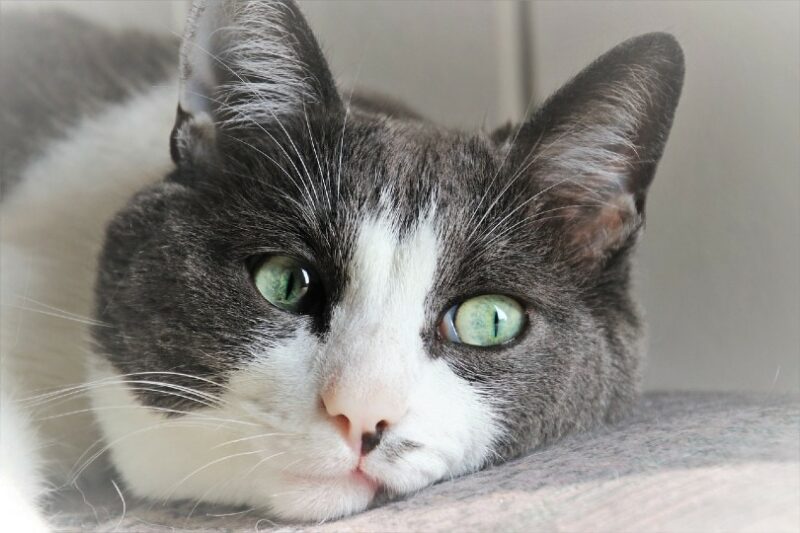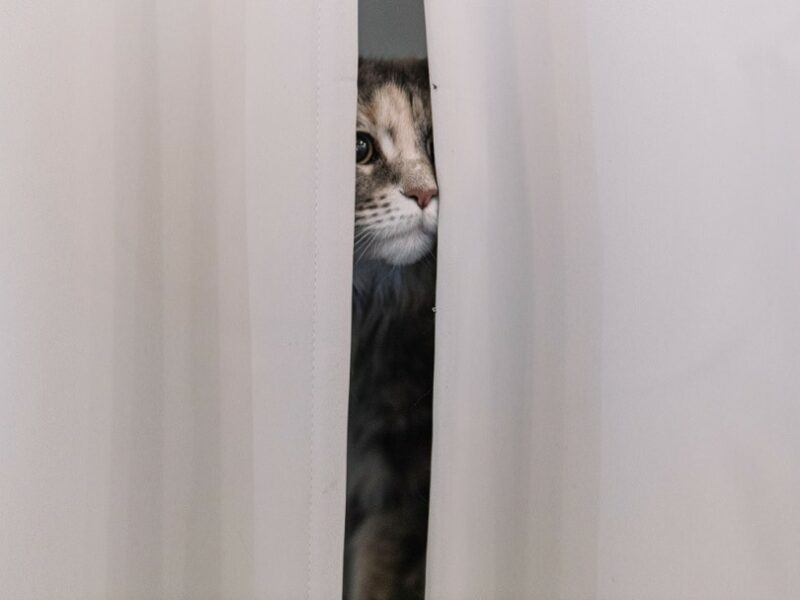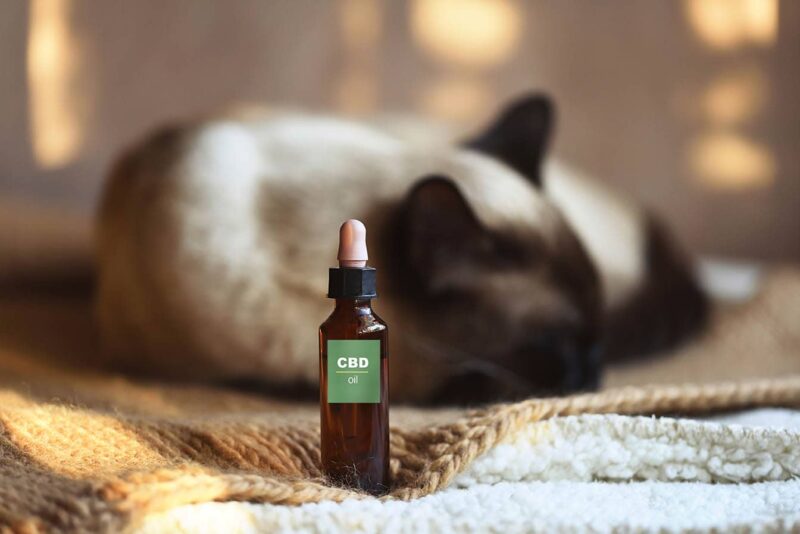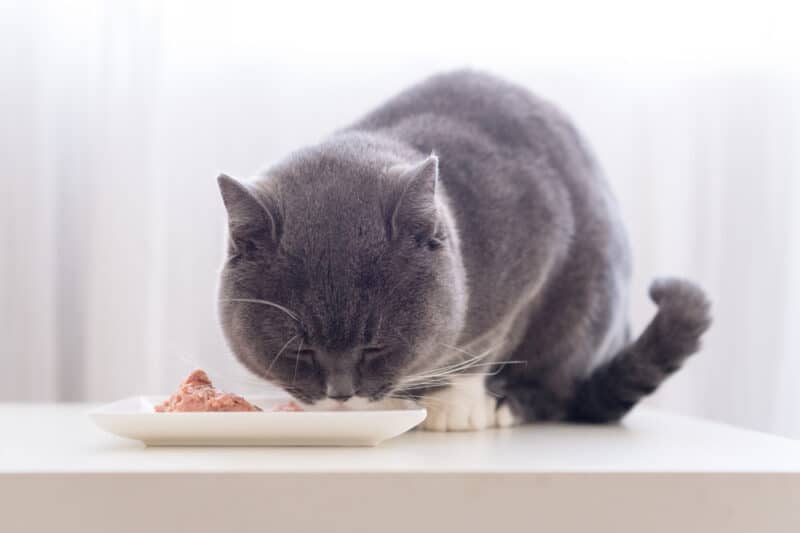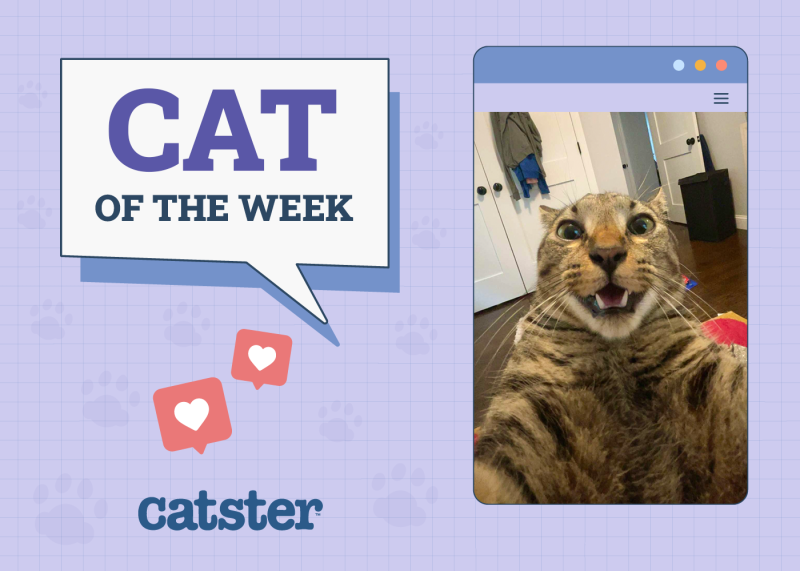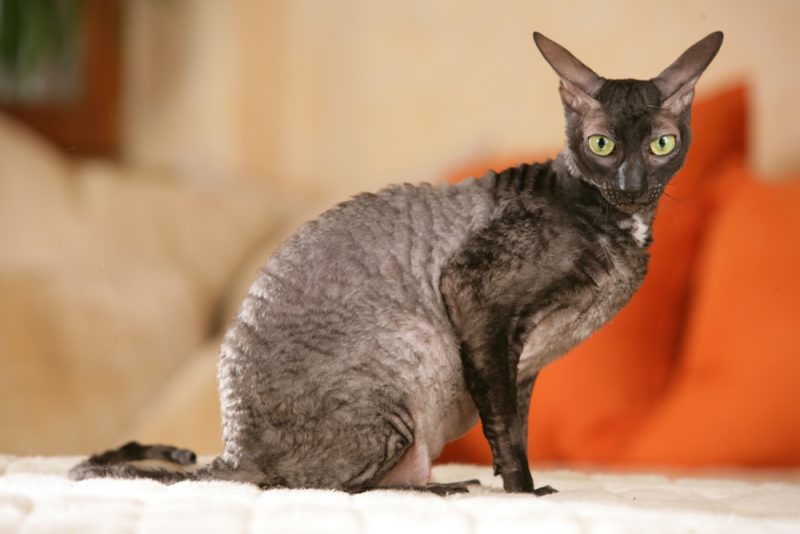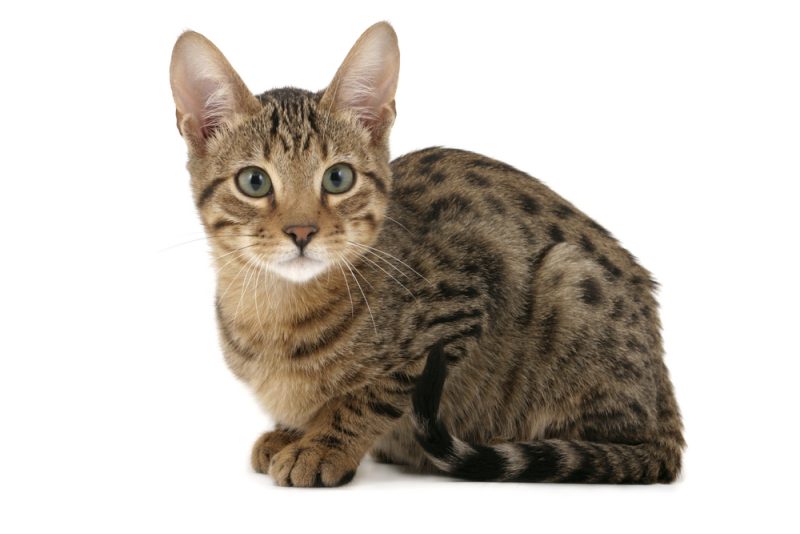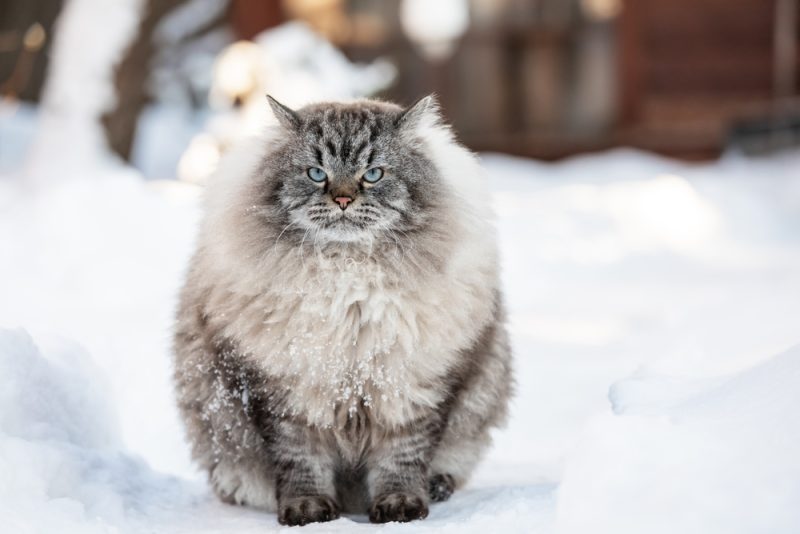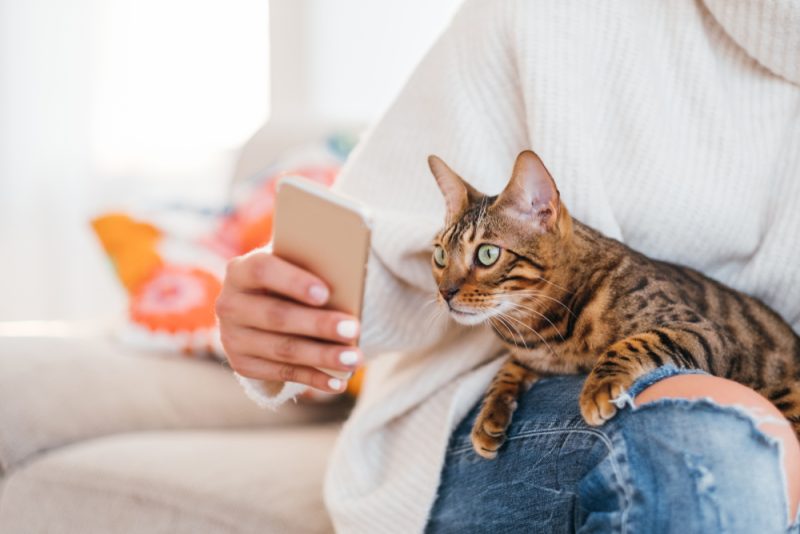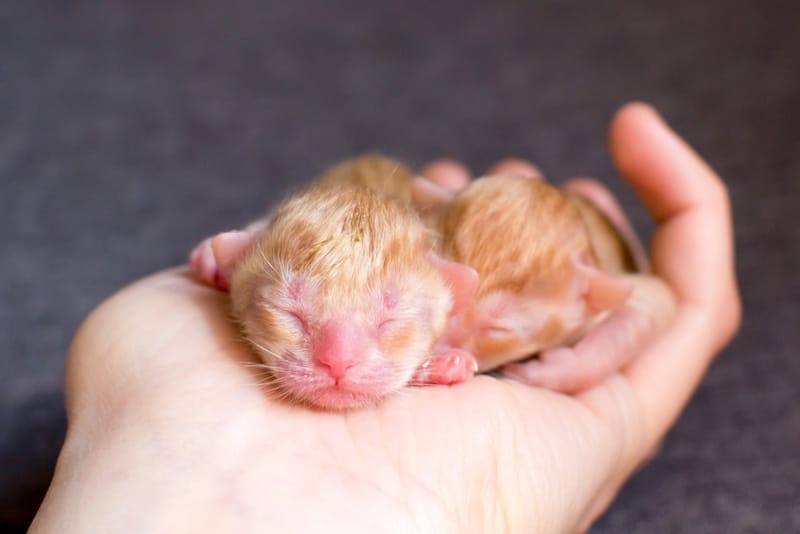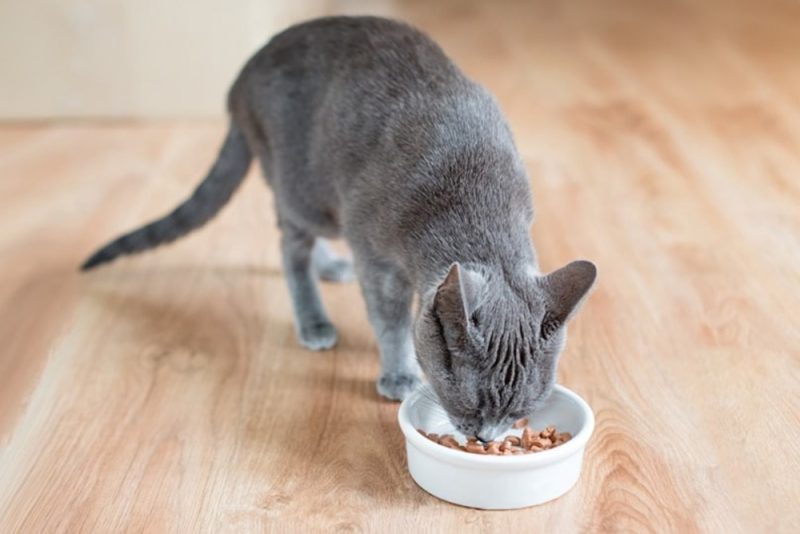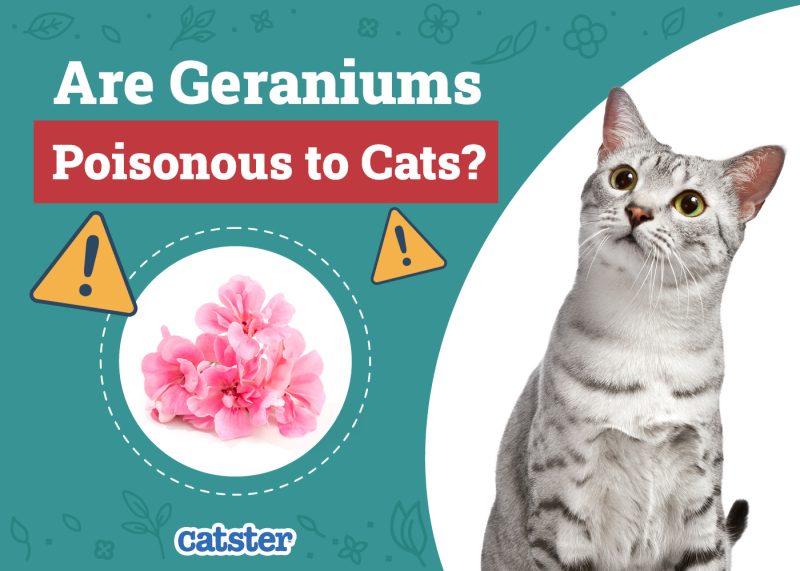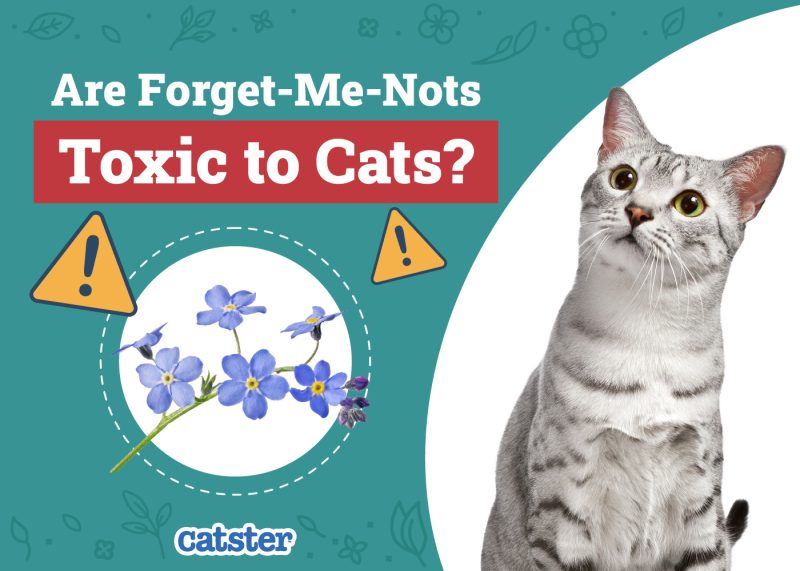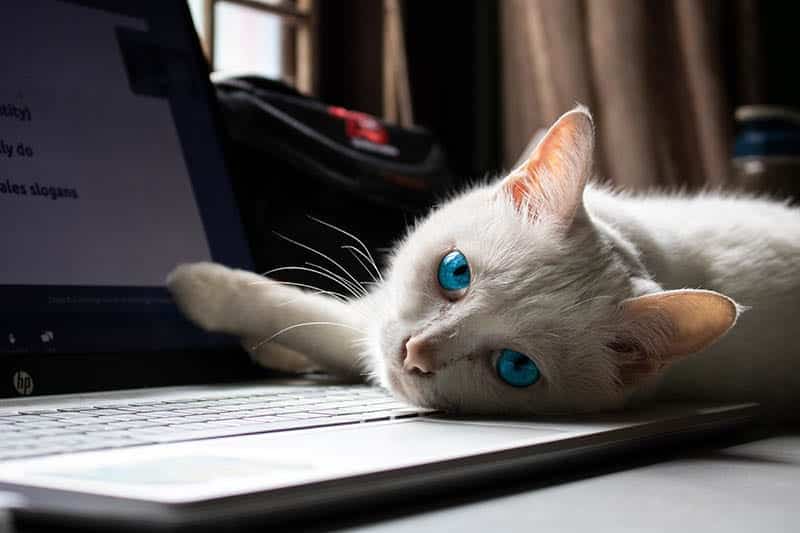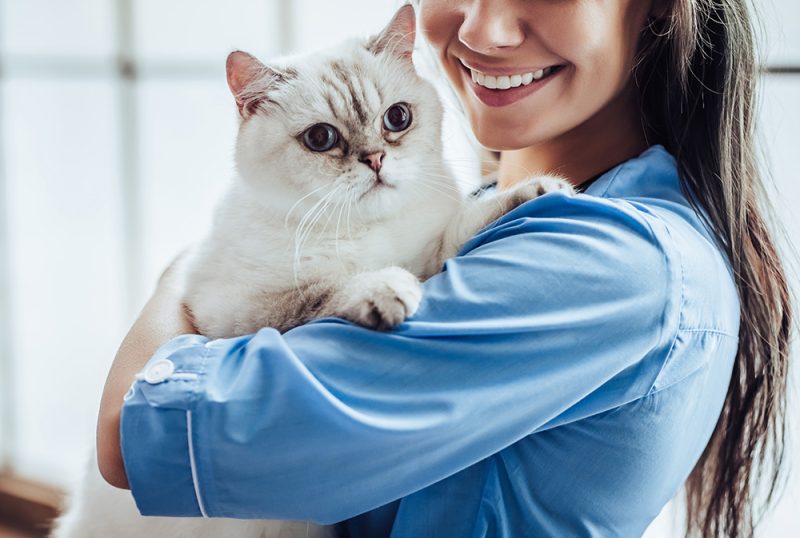In this article
Cheese is a food long associated with being a feline favorite, and while cheese isn’t toxic to cats, various ingredients within it, primarily the dairy content, are not good or healthy for cats and may instigate problems.
A small piece, ideally the size of a dice, is all that should be offered as a rare treat or, better yet, keep cheese as a reserve tactic for when you need to hide and administer medication.
Cats are known as obligate carnivores, meaning they must eat primarily animal protein. So, a complete feline diet and water are all they need to receive their required daily nutrition, and not feeding them a feline-specific diet can have severe consequences.
Treats for your kitty, like cheese, should only make up around 10% of their daily calorie intake 1. However, we all want to offer our fluffy friends a snack they enjoy, and it’s hard to turn them down when they’re so interested in the cheese on your plate.
It is thought that the fat and protein content of cheese is why cats love a little (or a lot!) of it rather than the diary contained in it being the magnet. So, if it isn’t toxic, why isn’t it good for them?

Why is Cheese Bad for Cats?
1. Lactose Intolerance
Most adult cats are lactose intolerant, meaning their bodies lack the enzyme needed to digest lactose, a sugar found in dairy products. While kittens can process lactose for a short time, they lose this ability by about six months of age. Feeding cheese to a lactose-intolerant cat can lead to digestive issues such as diarrhea, bloating, or vomiting. In contrast, a dairy allergy involves an immune system response to proteins in milk, mainly casein, and can cause symptoms like skin irritation or respiratory signs. Even if your cat isn’t lactose intolerant, cheese is still not a recommended treat due to other risks.
Signs of Lactose Intolerance in Cats
- Vomiting
- Diarrhea
- Gas
- Nausea
Signs of Dairy Allergies in Cats
- Vomiting
- Diarrhea
- Gas
- Itching
- Red and scaly skin patches
The onset of signs in your cat of lactose intolerance or dairy allergies usually occurs within a few hours. If you notice any of the following signs or are concerned at all, speak to a veterinarian for advice or have them check over your cat.
Need veterinary advice but can't get to the clinic? Catster recommends PangoVet, our online veterinary service. Talk to a vet online and get the answers and advice you need for your cat without having to leave your living room — all at an affordable price!

2. High Salt Consumption
Cheese often contains high levels of salt, particularly in varieties like feta or Parmesan. While salt is not toxic for cats, it is not recommended for them to consume high amounts. Consuming large amounts of salty foods without access to water can lead to dehydration or even sodium poisoning in severe cases. For your cat’s health, it’s best to avoid sharing salty treats like cheese altogether.
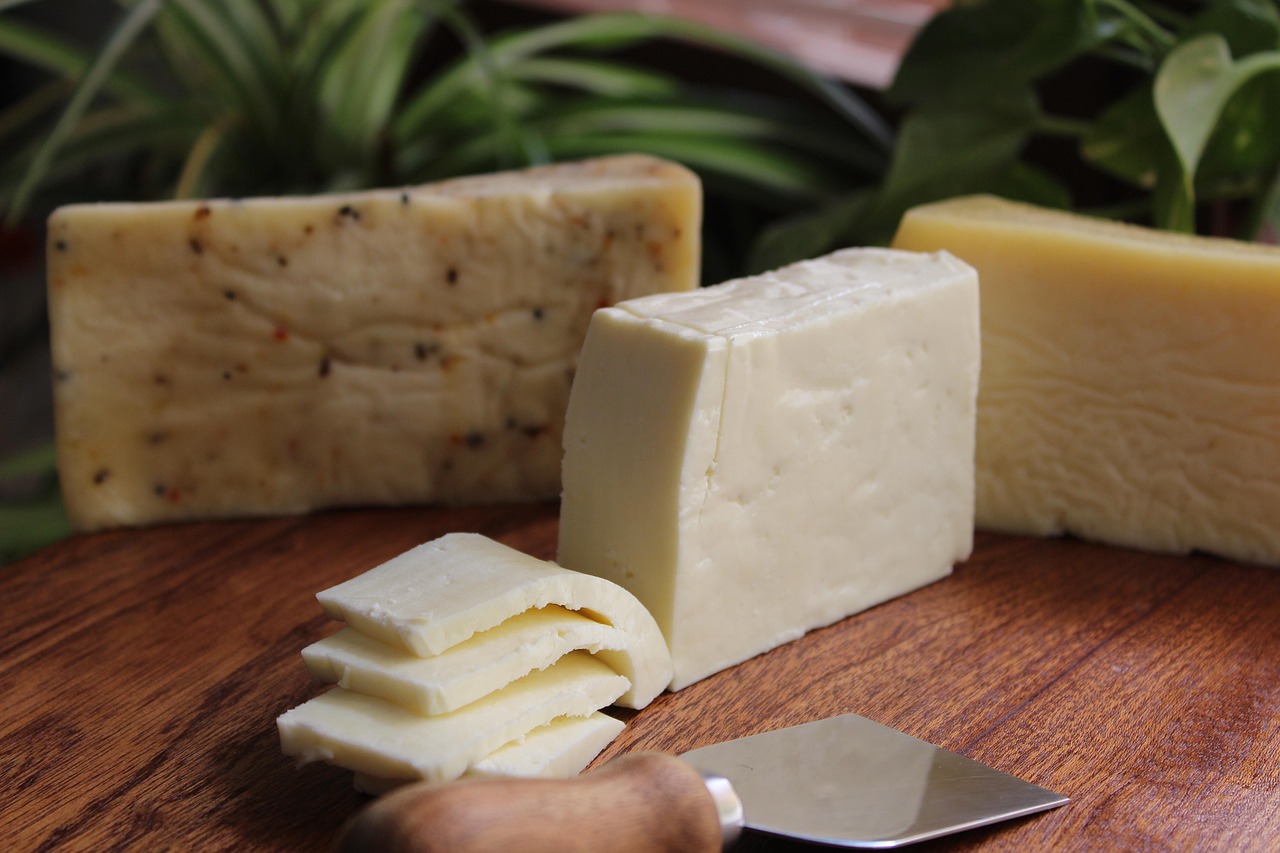
3. High Levels of Fat
Cheese is packed with fat, which, for cats already on low-fat diets—whether due to obesity or medical conditions like pancreatitis—cheese can exacerbate their health problems. Pancreatitis, in particular, is a potentially life-threatening inflammation of the pancreas. If your cat has been diagnosed with pancreatitis, avoid cheese entirely and consult your veterinarian for safe treat options.
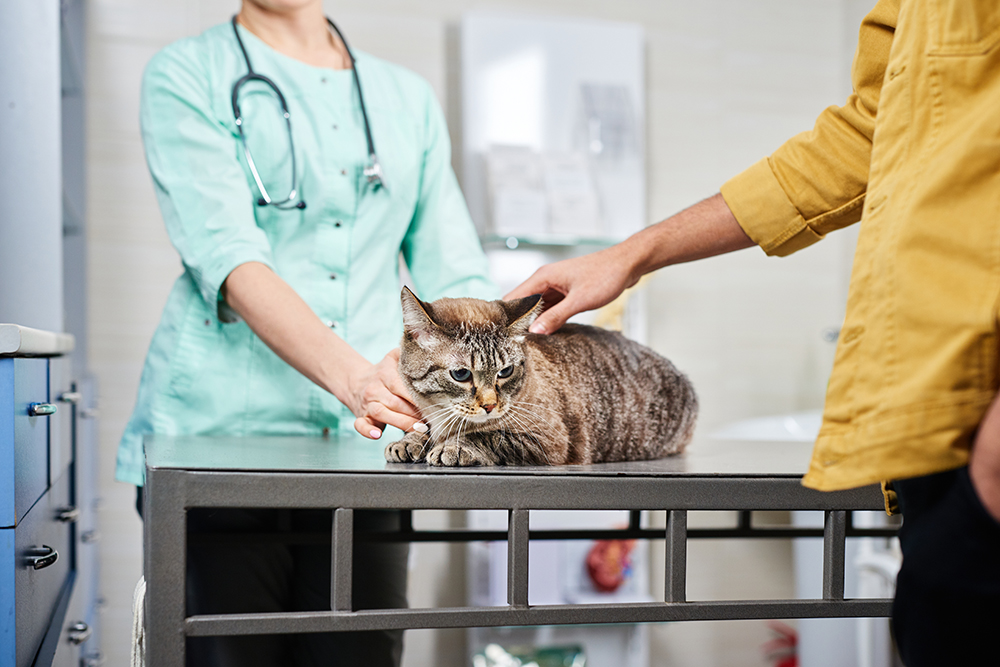

Are All Types of Cheese Bad for Cats?
Not all types of cheese are equally bad for cats. Additionally, if your cat is healthy and you are certain they aren’t lactose intolerant or allergic to dairy, then a tiny amount of cheese shouldn’t do any harm. If you are wondering what types of cheese are better, stick to firm cheeses that are plain and free of additives.
These cheeses are generally lower in lactose and salt:
- Cheddar
- Swiss
- Provolone
- Gouda
- Goat cheese (while this is lower in lactose, it’s higher in fat and contains less vitamin D than other options, so moderation is essential)
Soft cheeses often have higher lactose content, which makes them unsuitable for lactose-intolerant cats. Additionally, processed cheeses can be loaded with toxic additives like garlic or onion powder.
Avoid feeding your cat the following types of cheese:
- Cottage cheese
- Cream cheese
- Mozzarella
- Brie
- Blue cheese
- Camembert
- American cheese (a highly processed food with little nutritional value for cats)
- Spiced or seasoned cheese
Remember that portion size matters even with the types of cheese that are considered safe. Cheese should only be a very occasional treat, and it’s always best to consult your veterinarian before introducing new foods to your cat’s diet.

What to Do If Your Cat Eats Cheese
If your cat eats a small piece of cheese, there’s usually no need to panic. Most cats can tolerate a small amount of cheese without serious issues. However, it’s best to avoid offering cheese or dairy products to cats, as even small quantities can upset their stomach.
If your cat consumes a larger amount of cheese, watch for signs of digestive upset such as nausea, drooling, diarrhea, vomiting, bloating, or excessive gas. If your cat presents any of these signs, contact your veterinarian for treatment and a care plan.
Can I Feed My Cat Vegan Cheese?
Not really. Sorry! This isn’t a sneaky way around the issue. Vegan or non-dairy cheese does not contain lactose; however, the salt and fat content are still very high. The same theory about dairy cheese applies to vegan cheese: only a little here and there.
Any questions, concerns, or confusion regarding your cat’s diet and treats are best directed to your veterinarian. They will be able to tell you quickly whether your cat is on the correct diet and if cheese is allowed.
- NO MESS - The 360° tray on this cat food and water bowl set has a raised design to catch and...
- WHISKER FRIENDLY - Shallow and wide metal containers with flat bottoms ensure your kitty can enjoy...
- CHEW-SAFE MATERIALS - Kittens and cats love chewing on silicone and soft rubber - but it's a choking...
Learning about what your cat can and cannot eat is a crucial part of keeping them happy and healthy! Choosing a bowl to serve cat-friendly foods in is another important decision pet owners face. Satisfy the specific needs of your cat with the innovative design of the Hepper NomNom Cat Bowl. Learn why it’s our (and our cats!) favorite food and water dish here.
At Catster, we’ve admired Hepper for many years and decided to take a controlling ownership interest so that we could benefit from the outstanding designs of this cool cat company!

Conclusion
While cheese may seem like a harmless treat, it’s generally not safe for cats due to the risks of lactose intolerance, dairy allergies, high salt content, and excessive fat. Even small amounts can lead to digestive issues. If you’re ever in doubt, consult your veterinarian for advice on your cat’s diet and safe treat options. Prioritizing your cat’s health ensures they stay happy and comfortable.
Also see:
- Can Cats Eat Mac & Cheese? Vet-Reviewed Info to Know!
- Best Kitten Milk Replacers – Reviews & Top Picks
Featured Image Credit: Lysikova Irina, Shutterstock




